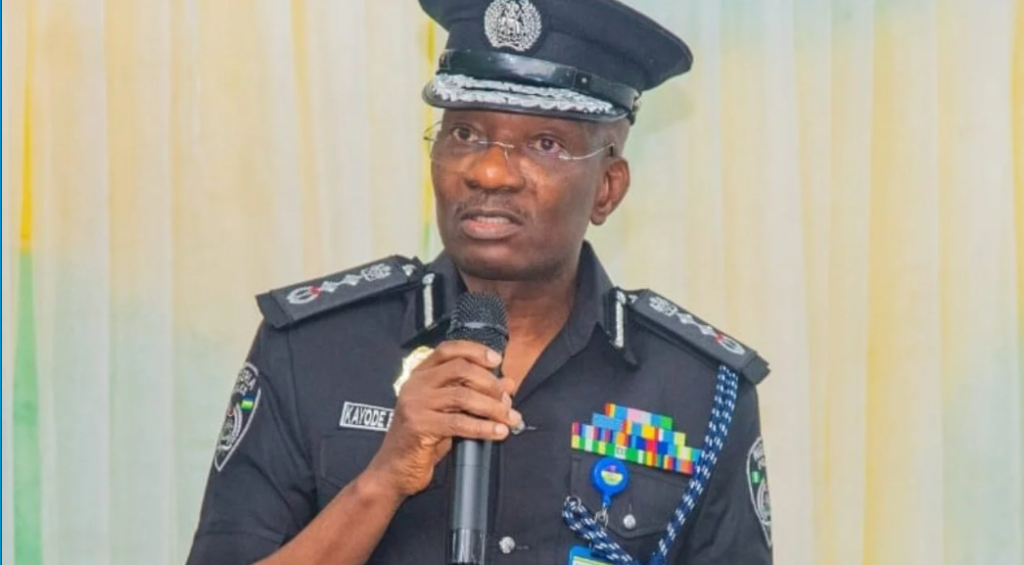The IGP also said the police needed to know the specific routes and areas for the protest to avoid conflicts with other events or activities.
By Jeffrey Agbo
Inspector General of Police (IGP), Kayode Egbetokun, has requested the names and addresses of groups that will be participating in the nationwide protest billed to begin on August 1.
The protest, according to flyers circulated on social media, is to address hardship and hunger in the country fuelled by President Bola Tinubu’s economic reforms.
While addressing journalists on Friday in Abuja, the IGP urged all groups planning to participate in the protest to submit their details to the commissioners of police in their respective states.
Egbetokun said, “We acknowledge the constitutional right of Nigerian citizens to peaceful assembly and protest.
“However, in the interest of public safety and order, we urge all groups planning to protest to provide necessary details to the Commissioner of Police in the state where the protest is intended to take place.
“To facilitate a successful and incident-free protest, they should please provide the following information: state the proposed protest routes and assembly points; expected duration of the protest; and names and contact details of protest leaders and organisers.”
READ ALSO:
Varsity don tells Tinubu to fire ‘insincere’ Onanuga, cut governance cost to pacify protesters
The IGP added that the information expected from the organisers also include measures to prevent hijacking by criminal elements, as well as key identifiers for possible isolation of potential troublemakers.
He added that by providing the information, the police will be able to deploy adequate personnel and resources to ensure public safety.
The IGP also said the police needed to know the specific routes and areas for the protest to avoid conflicts with other events or activities.
Among the other guidelines mentioned are, “Establish clear communication channels with protest leaders to address any concerns or issues that may arise; minimise the risk of violence, property damage, or other criminal activity.
“We encourage all protesters to cooperate with the police, obey the law, and adhere to global best practices for peaceful assembly to guarantee a safe and successful exercise of their rights.”


